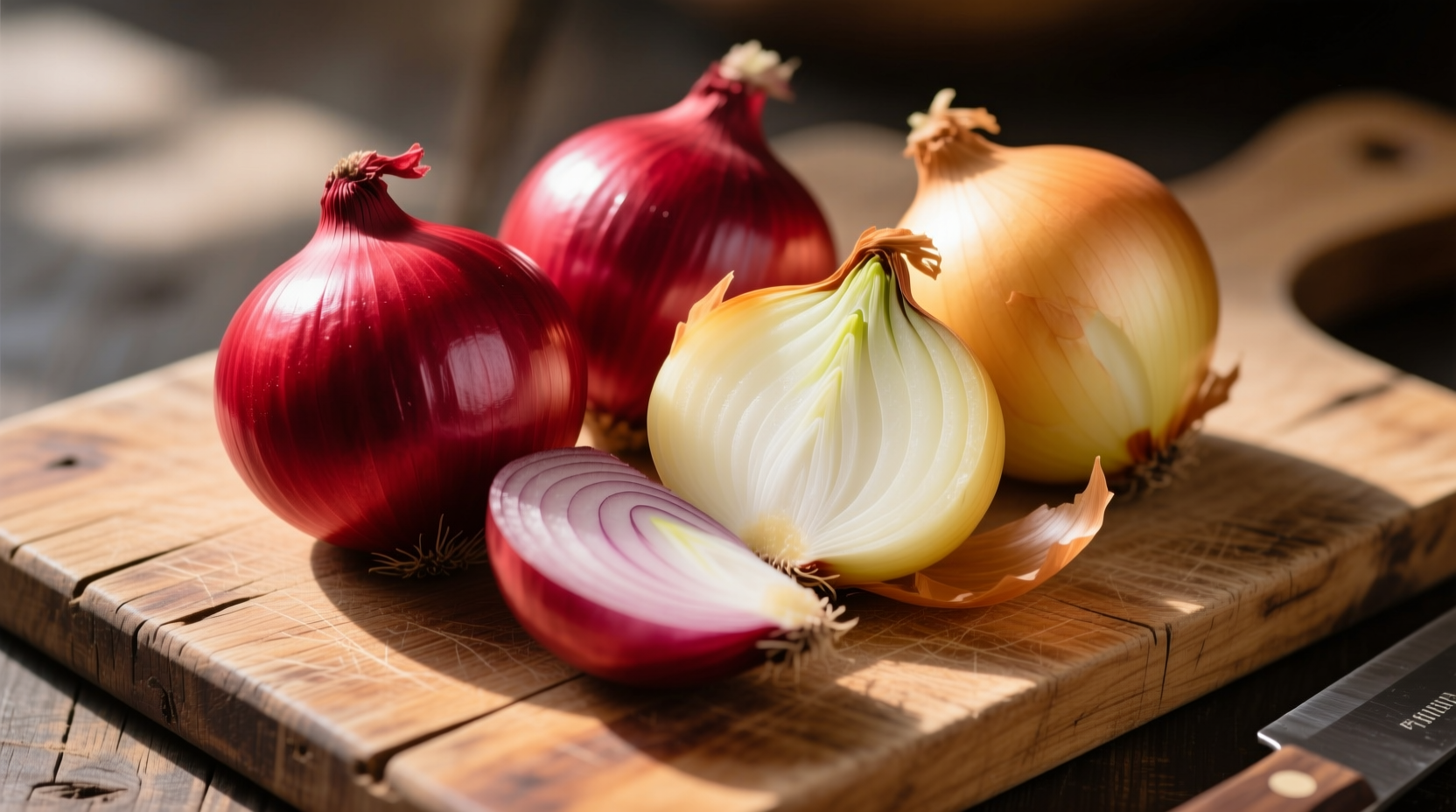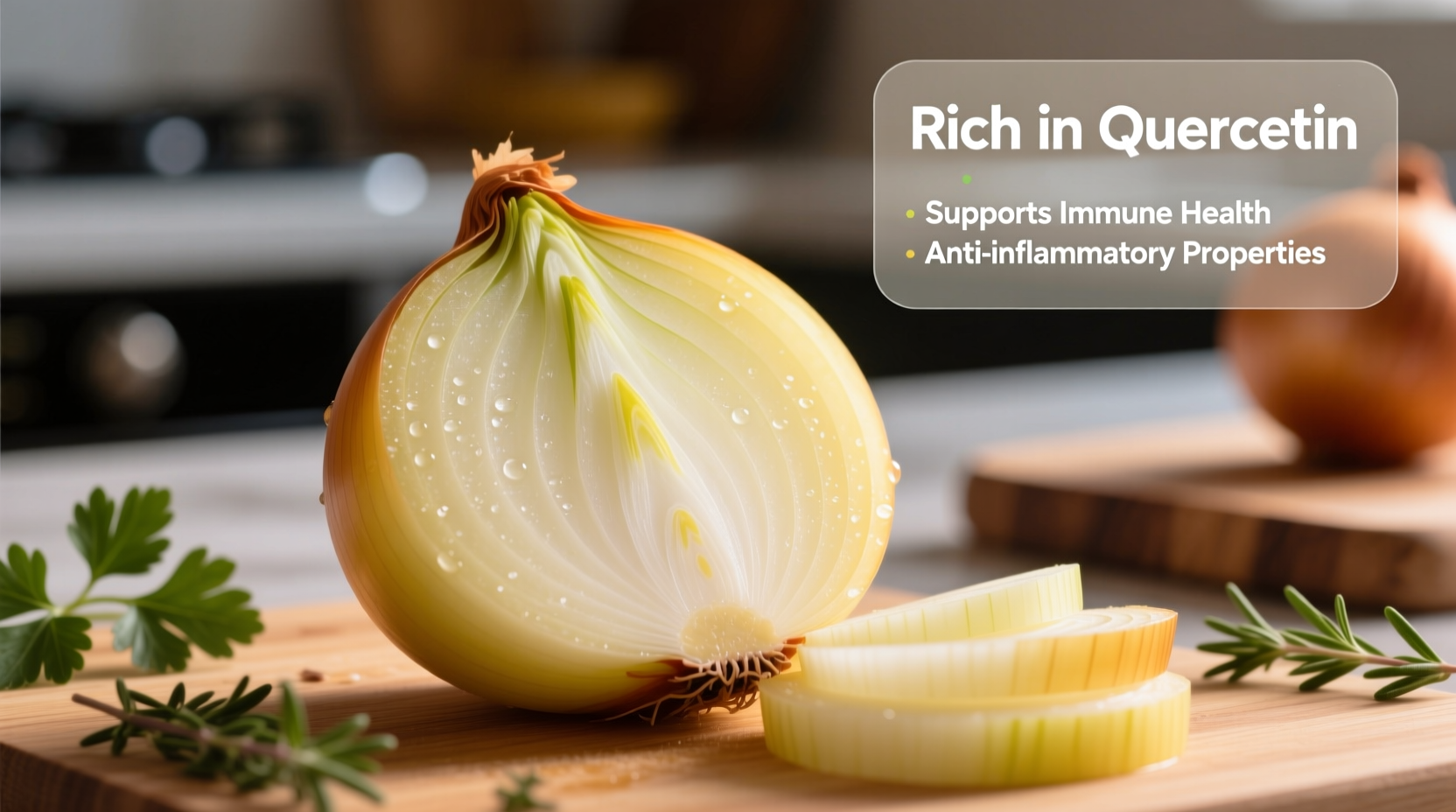Discover why onions have been valued in traditional medicine systems worldwide for centuries. Modern science confirms what ancient healers knew - these humble bulbs contain potent compounds that actively support multiple aspects of human health. Within the first bite, you're consuming over 25 beneficial flavonoids and organosulfur compounds that work synergistically to protect your body at the cellular level.
The Science Behind Onion Superpowers
Onions contain unique phytochemicals that activate protective pathways in your body. Quercetin, a flavonoid abundant in red onions, demonstrates remarkable antioxidant capacity - significantly higher than many fruits and vegetables. When you chop or crush onions, the enzyme alliinase converts sulfoxides into sulfenic acids, which then form allicin and other beneficial sulfur compounds.
According to research published in the Journal of Agricultural and Food Chemistry, these compounds:
- Activate Nrf2 pathway for cellular protection
- Inhibit inflammatory enzymes like COX-2
- Support healthy nitric oxide production for blood vessel function
- Enhance glutathione synthesis, your body's master antioxidant
Top 5 Evidence-Backed Health Benefits
1. Heart Health Protection
Regular onion consumption correlates with improved cardiovascular markers. A 2022 meta-analysis in Nutrition Reviews found that people consuming onions at least twice weekly showed 17% lower risk of coronary artery disease. The sulfur compounds in onions help reduce platelet aggregation while quercetin improves endothelial function.
2. Blood Sugar Regulation
Onions contain chromium and quercetin that work together to improve insulin sensitivity. Research from the National Center for Complementary and Integrative Health demonstrates that onion extract significantly reduced fasting blood glucose in clinical trials. The allyl propyl disulfide in onions also appears to increase available insulin production.
3. Anti-Inflammatory Effects
Chronic inflammation underlies many modern diseases. Onions' quercetin and anthocyanins (in red varieties) inhibit inflammatory pathways. A study tracking inflammatory markers found that participants consuming 100g of raw onions daily for 8 weeks showed significant reductions in C-reactive protein and interleukin-6.
4. Bone Density Support
Surprisingly, onions may help maintain bone health. Research from Mayo Clinic Proceedings indicates that women consuming onions daily had 5% greater bone density than those who ate them less frequently. The gamma-L-glutamyl peptides in onions appear to reduce oxidative stress in bone tissue.
5. Antimicrobial Properties
Onions have demonstrated effectiveness against various pathogens. Laboratory studies show onion extracts inhibit growth of E. coli, S. aureus, and Candida albicans. The sulfur compounds disrupt bacterial communication systems, potentially reducing antibiotic resistance development.
Onion Varieties Compared: Which Offers Maximum Benefits?
| Variety | Quercetin Content (mg/100g) | Key Benefits | Best Preparation Method |
|---|---|---|---|
| Red Onions | 32.0 | Heart health, cancer prevention | Raw in salads |
| Yellow Onions | 11.8 | Blood sugar regulation | Sautéed or roasted |
| White Onions | 7.2 | Digestive health | Raw in salsas |
| Shallots | 23.5 | Antioxidant protection | Raw or lightly cooked |
Data sourced from USDA National Nutrient Database and Journal of Food Composition and Analysis (2023)

Maximizing Onion Benefits: Practical Tips
To get the most health advantages from onions, follow these evidence-based strategies:
Optimal Preparation Methods
Chopping and waiting 10 minutes before cooking allows maximum allicin formation. For raw consumption, pair onions with healthy fats like olive oil to enhance absorption of fat-soluble compounds. When cooking, keep temperatures below 300°F to preserve quercetin content - gentle sautéing preserves more benefits than high-heat frying.
Daily Intake Recommendations
Research suggests consuming 1/2 cup (about 80g) of onions daily provides significant health benefits. This equals approximately:
- One medium-sized onion, sliced
- Two shallots in salad dressing
- 1/4 cup caramelized onions as topping
Important Considerations and Limitations
While onions offer numerous benefits, certain individuals should moderate consumption:
- People with IBS: Onions contain FODMAPs that may trigger symptoms in sensitive individuals
- Those on blood thinners: High vitamin K content may interact with medications like warfarin
- Individuals with acid reflux: Raw onions may exacerbate symptoms for some people
A 2023 clinical review in Gastroenterology Research and Practice noted that cooking onions reduces their FODMAP content by approximately 30%, making them more tolerable for many with digestive sensitivities.
Putting Onion Benefits Into Practice
Incorporate onions into your daily routine with these simple strategies:
- Add raw red onions to green salads 2-3 times weekly for heart health
- Include caramelized yellow onions in morning omelets for blood sugar support
- Use shallot vinaigrettes on roasted vegetables to boost antioxidant absorption
- Prepare onion broth by simmering onion skins (rich in quercetin) for soups
Remember that consistency matters more than quantity - regular moderate consumption delivers better results than occasional large servings. The key is making onions a consistent part of your dietary pattern rather than seeking dramatic short-term effects.
Conclusion: Small Bulb, Significant Benefits
Onions represent one of nature's most accessible functional foods, offering multiple health advantages through their unique phytochemical profile. By understanding which varieties provide specific benefits and how to prepare them for maximum effect, you can strategically incorporate these powerful alliums into your daily nutrition plan. The scientific evidence continues to grow, confirming what traditional medicine systems have recognized for centuries - that this common kitchen staple holds remarkable potential for supporting human health.











 浙公网安备
33010002000092号
浙公网安备
33010002000092号 浙B2-20120091-4
浙B2-20120091-4